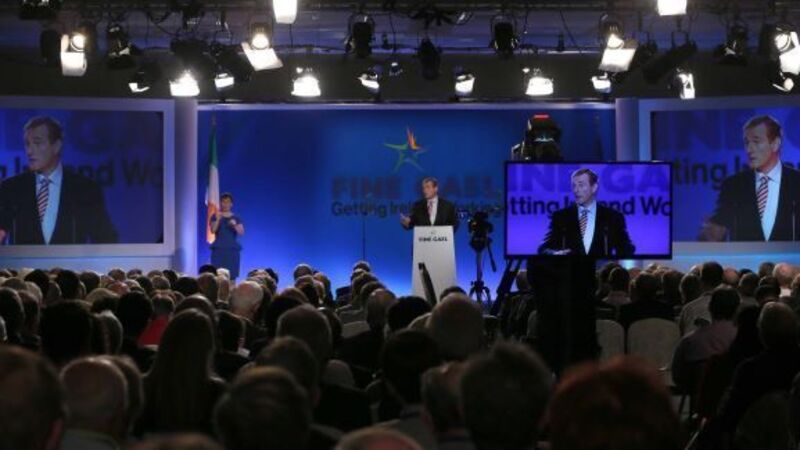Fine Gael feel good at ‘back to basics’ bash ahead of budget bang

Law and order and the economy, or more specifically warning the long-term unemployed there will be “nothing for nothing” if they don’t co-operate with the various back to work schemes, were the moral crusades that lifted the atmosphere of foot soldiers in the Treaty City where security was surprisingly tight.
In fact, the loss of the Seanad poll didn’t appear to be causing too many problems for anybody. “It was Enda’s thing” said one Dublin TD. “It will all be forgotten after the budget” was the response which was typical of others.
















